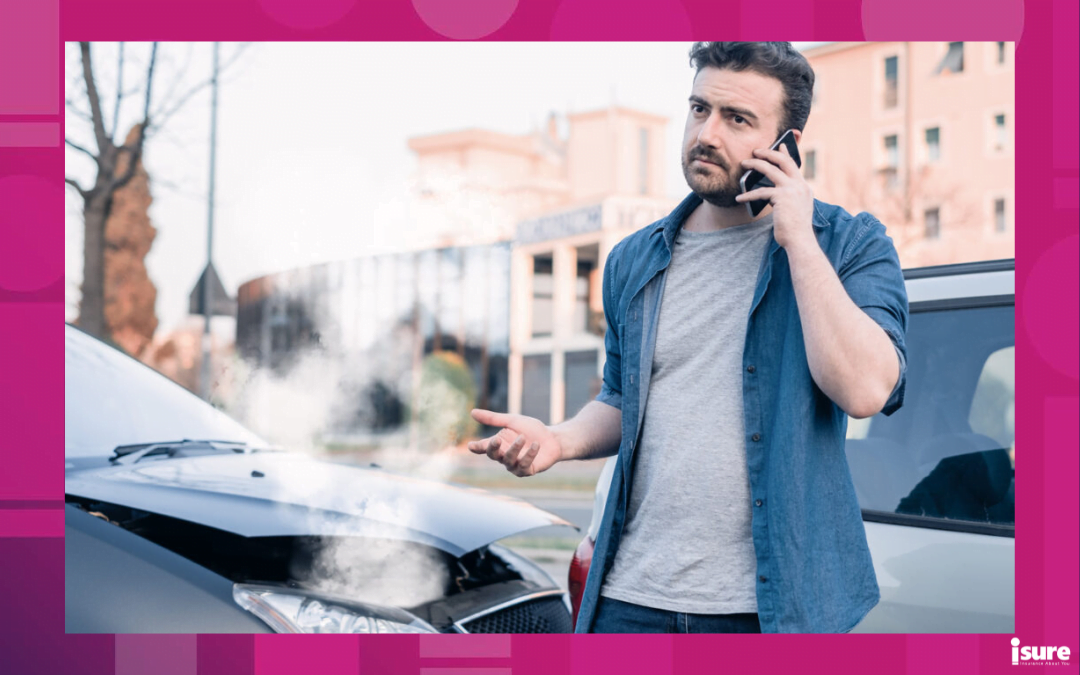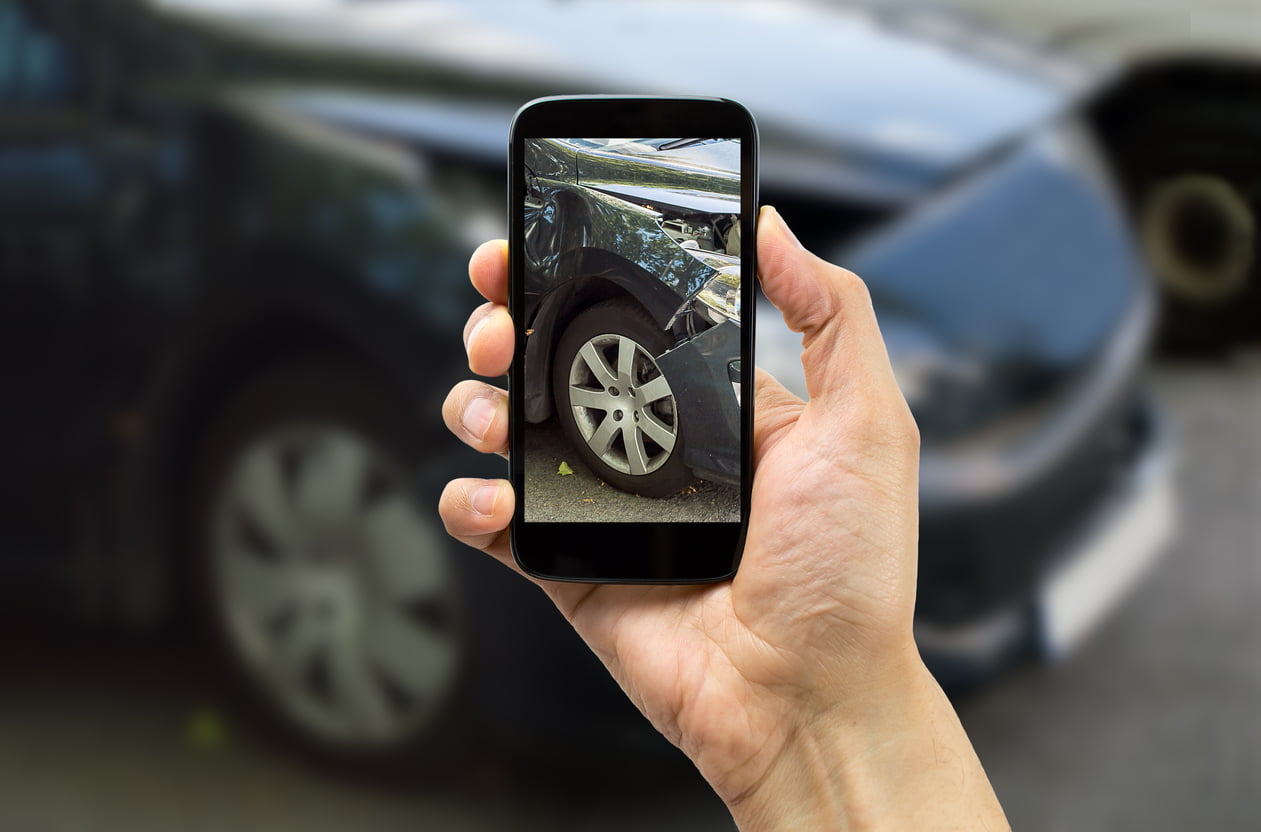Getting into an accident can be stressful. Once the shock of the incident wears off, you’ll need to have your car repaired or replaced. Understanding your auto policy coverage is important at a time like this. To help you through this experience, we’ve answered some of the more commonly asked collision insurance questions below:
Is collision insurance required in Ontario?
No. Although it should be part of your auto policy, it is not mandatory. However, it is recommended, especially if you have a newer vehicle.
Am I covered for an accident through my liability coverage?
Third-party liability insurance provides protection against claims of damage and injuries to people and property that you are responsible for. It does not cover you for damages to your own property.
What happens if you do not have collision coverage?
Without collision coverage, you will have to pay out of pocket. If you are found to be at-fault, you will have to pay to repair the damage to your own vehicle.
Do I need collision insurance?
When deciding whether you need this type of coverage, you should consider the value of your vehicle and the size of your collision deductible. Driving a brand new EV? It will be a relatively small investment to pay a deductible of $1,000 to have it replaced. On the other hand, if you’re driving an old car whose value is roughly the same as the deductible, paying extra for this protection is perhaps not your best choice.
While collision coverage is an add-on coverage to the coverage mandated by the laws of Ontario, it’s highly recommended that you have it for your protection and financial peace of mind. If you can answer “yes” to one or more of these questions, then you should give it honest consideration:
- Do you commute to work?
- Are there young, occasional drivers on your vehicle policy?
- Do you take road trips or drive to a cottage pretty regularly?
- Do you frequently drive on busy highways, like the 401?
- Do you live in an urban area prone to more accidents?
- Will you be financially stable if you need to pay for your vehicle repairs or replacement out-of-pocket?
- Are you the owner of a newer and/or luxury vehicle?
What’s the difference between collision and comprehensive coverage?
Car insurance is a mandatory requirement for anyone driving in Ontario. You can’t own a vehicle with the purpose of driving it without purchasing car insurance. According to Ontario law, each driver must have a basic auto policy including:
- Third-party liability coverage
- Direct Compensation Property Damage (DCPD)
- Accident benefits protection
- Uninsured automobile coverage.
Beyond this, insurance providers have a wide range of additional protection that can be purchased which caters to your individual needs and budget. Collision and Comprehensive coverage are both options you can add to your policy, with a distinct difference. Which coverage steps in is determined by whether or not you are driving the vehicle at the time the damage occurs:
Collision coverage pays for damages or losses resulting from a car accident, whether you are at-fault or not. This will also help you in the event you hit an object. An “object” can include:
- Another vehicle
- A trailer that is attached to a vehicle that has coverage under your policy
- The surface of the ground, as in a rollover accident
- Any object on the ground, such as a garage door, street sign, or guardrail
Comprehensive insurance, on the other hand, only covers incidents that don’t involve another vehicle. This will include damage caused by a natural disaster, theft, vandalism, and fires.
What makes liability and collision insurance different?
Collision is not mandatory, while liability is. Third-party liability provides protection against claims of damage and injuries to people and property. Collectively, they provide you with better overall protection when driving.
What are the factors to consider when deciding to purchase collision insurance?
The three major factors affecting the price of collision insurance are:
- Your driving history
- The value of your vehicle
- The size of your deductible
Is collision necessary for a rental car?
It depends on your personal automobile policy. Some policies include rental cars in their coverage. If you have the OPCF 27 endorsement, it will apply to rental cars. Collision coverage is, however, a requirement if you are planning to lease or finance a car. So, it’s important to find out if you have it before you arrange for some through the rental company.
What is accident forgiveness?
Depending on your insurer, they may offer an option for accident forgiveness. If you’re in an at-fault collision and you have it on your policy, your insurer won’t increase your premiums for one accident. If you have a history of accidents, you may not qualify for this add-on endorsement to your policy. It may come standard on your policy, so be sure to ask about it when you’re speaking with your insurance provider. Otherwise, you can ask to have the OPCF 39 Accident Forgiveness endorsement added to your policy.
When should I drop collision insurance?
The rule of thumb is if the cost of collision insurance is 10% or more than your vehicle’s worth, it’s time to drop it. For instance, a $5,000 car that costs you $500 in collision coverage every year just isn’t worth it. There are a few situations where it may make more sense to keep the additional protection:
- If you are leasing or financing
- If you have a long history of accidents
- If you wish to have some peace of mind
How much should my deductible be?
A higher deductible means you’ll pay less for insurance annually, but you’ll have to fork over that higher amount if you file a collision insurance claim. If you can afford the higher deductible, go for it. Deductibles for collision coverage typically come in options of $500 and $1,000, but it’s possible to find higher deductibles. Some of the key factors to consider are the following:
- The age of your vehicle
- The price of your vehicle
- Your driving experience
- How expensive your vehicle is to repair or replace
- Occasional drivers on the vehicle with less experience and/or poor driving records
- How much you can afford to cover out-of-pocket if necessary
Is DCPD coverage the same as collision coverage?
DCPD is the portion of your policy that compensates you directly when your vehicle is damaged in an accident for which you are not at fault. Collision coverage pays for damages when you are at fault.
If I settle a fender bender out-of-pocket, will it affect my insurance?
Possibly. You may choose to settle damages with a third party without involving your insurance company for minor damages. However, bear in mind that the third party has up to a year (from the date of loss) to file an insurance claim for damages to their vehicle. Additionally, the third party has up to two years for any injuries that may have occurred. If they file their claim before the deadline, their insurance company will notify your insurance company and your premiums can still be impacted. Talk to your isure broker about your situation.
When should I report a minor collision in Ontario?
When it comes to minor car collisions, many people are stuck scratching their heads as to whether to report it or not. You must file a police report if:
- The accident resulted in over $2,000 worth of damage between both vehicles
- The accident has caused damage to municipal or third-party property
- A bystander was involved in the incident
- An injury or death occurs
- A government vehicle was involved
- A criminal act has taken place. (i.e., one of the drivers was under the influence or one of the involved drivers does not have a valid licence or insurance.)
Regardless of the severity of your collision, proper steps need to be taken. Your first step when involved in a minor collision is to visit and report to a Collision Reporting Centre in Ontario. This should always be your first step when nobody is injured and the damage to your vehicle appears to be less than $2,000. This should be done within 24 hours of the collision.
Is a hit-and-run accident covered by collision insurance?
Yes. If you are the victim of a hit-and-run, it is your policy’s collision coverage that will reimburse you for damages. That is, provided you have this optional coverage added to your policy prior to the accident. Remember, our isure brokers can answer any collision insurance questions you may have if you have been in an accident.
Although it is not mandatory in Ontario, collision coverage is an integral part of your auto protection. There are many factors that should go into your decision of whether or not to add or remove collision insurance from your policy. That’s where we can help! Call one of our isure representatives today to assist you in gaining a better understanding of collision coverage in Ontario.




